
Last year when COVID was migrating through our household in a slow and serial process, I was forced to quarantine for nearly a month. This gave me some time to write a paper with Dr. Peter McCullough and Anthony Kriakopoulos. I had a 102F C19 positive fever when I uploaded it to OSF.io on Thanksgiving and my family thought I was nuts/obsessed with the topic.
It was impacting everything in our lives from our children being threatened with vax mandates, masking on ice of hockey games, rejection of players and parents from sporting events… we even missed our oldest son graduating from the high school I attended as they just canceled their whole spring semester. Told the students to not bother coming back after spring break as covid was too much of a concern.
I got a bad case of covid as I got hospitalized for Atrial fibrillation before we had PCR confirmation of Covid. I was RAT test positive and in Afib and my sister being a cardiologists suggested I go in to get an IV to get the A-fib under control. A-fib runs in our family. Our father had it and my two brothers have it and we believe its related to an RYR2 and Calcium channel variant tracking in the family.
This was mid delta wave in Salem Ma and there was zero wait in the hospital. They had a billing feast on me, rigging me up to CT scans with contrast, EKGs, D-Dimer tests, PCR, the works. They did this throughout the night so I got zero sleep as they did the woke and poke all evening long. This was frustrating as my A-fib is most easily triggered by dehydration and lack of sleep.
Despite this billing frenzy, they would not treat the viral infection. Only the A-Fib. Unless I agreed to take remdesivir which I refused. My tripled vaxxed hospital roommate had been there for 12 days on remdesivir and they pointed to him as a beacon of success! I had a shouting match with the physician pushing this as it was clear they hadn’t read the trial. They de-escalated the conversation as I was starting to alert the roommate to the fact that his kidney problems were probably a result of remdesivir and not the virus. As a compromise they offered me Tylenol.
I’ve already covered how annoying Tylenol is for COVID.
I tried to leave the hospital as I had Ivermectin at home but they threatened me with “leaving against medical advice” and that could trigger insurance to reject payment for the plethora of tests they just ran.
So I stayed another day and regretted it. By the time I got Ivermectin it was 3 days untreated and it took off. I had over 7 days over 100F fever. I foolishly tried to suppress this fever as it occasionally hit 103F but in retrospect should have just left the 100F alone to do its job. Despite Pepcid, IVM, Nubulized budesonide, Zinc, Quercetin, CBD, VitD, VitC, I was becoming a variant generator and my O2 was dropping below 90%. The team of physicians (many I know from Twitter) moved me onto Prednisone and antihistamines and I began to recover. It was slow. I didnt get my cardio strength back to 100% for months and the prednisone weening was depressing.
Needless to say, I hadn’t found time to polish up the preprint and submit it to a journal until After Xmas. MDPI editors turned it down without sending it to review. No reasons given. I then aimed at a Hindawi journal in January which I have never submitted to in the past but it had an open policy and didnt care about the preprint ‘breaking embargo’. A few months later we get a notice that it was reviewed favorably with a few revisions requested.
This is where the story gets interesting.
So what exactly are these minor revisions.. Let’s have a look.
Reviewer 1 above
Reviewer 2 below
This is as hopeful as one can get with a review. They are usually a much longer list of demands some anonymous troll is asking for you to perform to satisfy the curiosity of their own research or to intentionally slow down yours. They ask for laundry lists of new analysis that are often only relevant to their pet projects and rarely alter the thesis put forward. Their main intent is often to delay your publications so their competing work can get through review while you are flooded with busywork. Sand in the gears from competitors. This review is nothing like that. We got lucky and found reviewers not threatened by our work.
We made the changes they suggested and resubmitted and then… Crickets.
After pestering the journal for a publication date, they inform us of the following.
We politely forward more literature that has since published supporting our work and ask again for progress.
A full month later with a few pestering emails in-between and we are back to Form letter responses.
Peter, being an editor was more patient than me but he finally threw in the towel and we aborted ship on Hindawi in Late June.
The Divorce Email-
We were not bluffing.
Jessica Rose was kind enough to put us in touch with Tamara Ugolini from Rebel News who I think did a great job reminding her audience that our paper is a preprint and the concerns hypothetical.
This short interview was expanded on with JJ Couey.
And an expanded interview here.
Draw your own conclusions but before you do so, take a few minutes to understand the money flows of Journals and the history here. Journals were helpful in a world that was poorly networked. They had a long list of credible reviewers they could connect to peer review new papers and built credibility on this platform. Over time they began to take on advertisement revenues and to this day very few pay any reviewers for their time or effort in review. The people submitting the papers pay Anywhere from $3k-$5K to the journal for publication and sign over their copyright to the Journal. The reviewers are slave labor guilted into do things in the name of science and Pharma/biotech industry pays them $10-20K for full page ads (2008 prices I recall). Hindawi is the cheapest I have found at only $750 per paper. Once published, some journals then sell each download for $35-50 and often full subscriptions to universities for millions. This creates a dangerous incentive system that needs to dis-intermediated if we want any truth to emerge in Science.
I presented on a blockchain based system to do this at the Texas Bitcoin Conference that leverages Cryptocurrencies to find your own reviewer and hash all communication on public distributed ledgers (Blockchains).
We funded, sequenced and published the cannabis genome using this approach and it took 5 months from funding to publication. This approach eliminates the Journals and their conflicts but is criticized for ‘putting money’ into peer review by most socialist scientists that don’t seem to understand pricing signals. We explain the rational for pricing signals here.
In summary, Peer review is not what the public believes it to be. You can see many papers that Nerf their Abstract and conclusions to get published. Nerfing is a description when the curtains dont match the rug. The text softens what the actual data speaks to in order to not offed conflicted editorial boards. Have a tour through the Nerfing the Abstract examples on this sub stack for more examples.
We have the tools to fix this. We just need the desire and COVID has made that more clear than ever before.







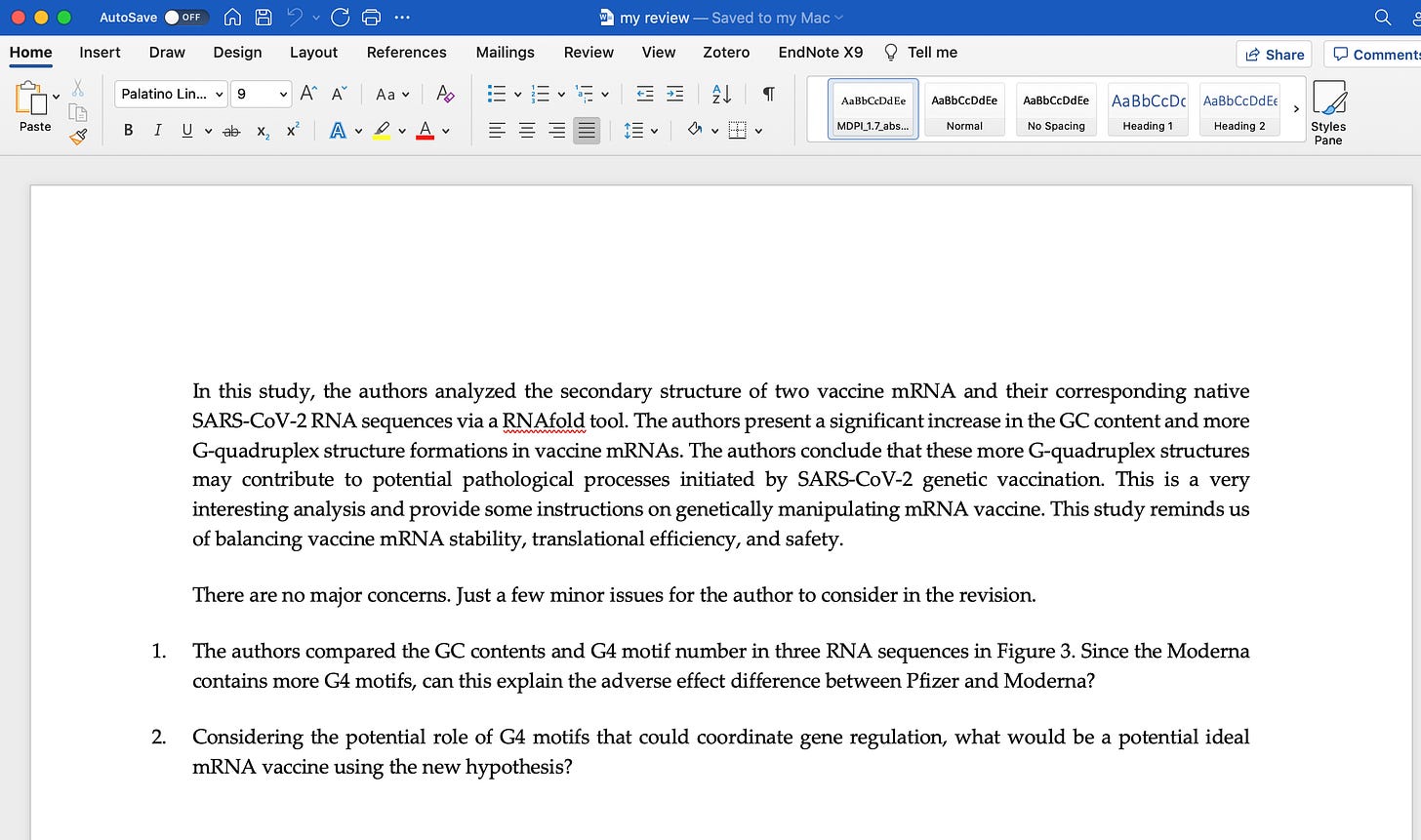



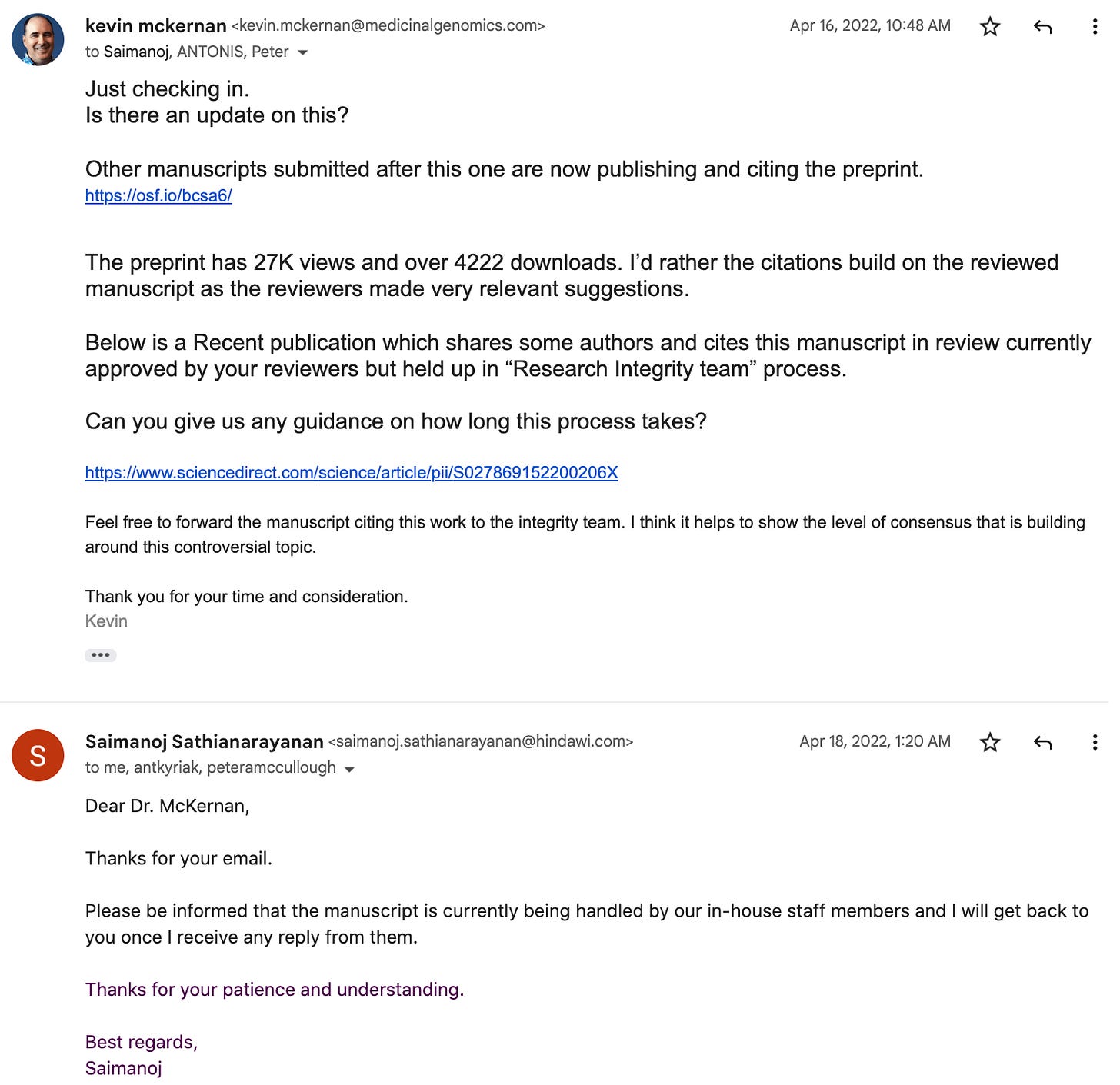
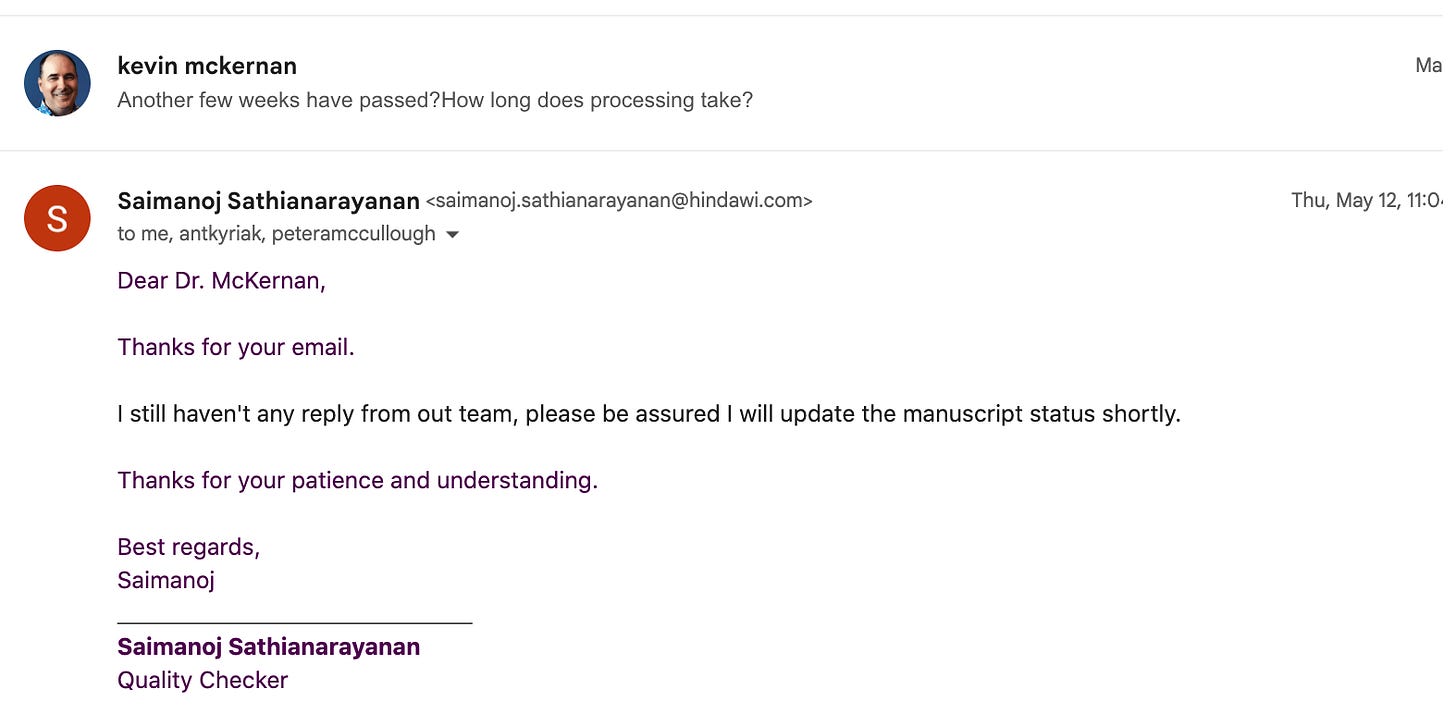
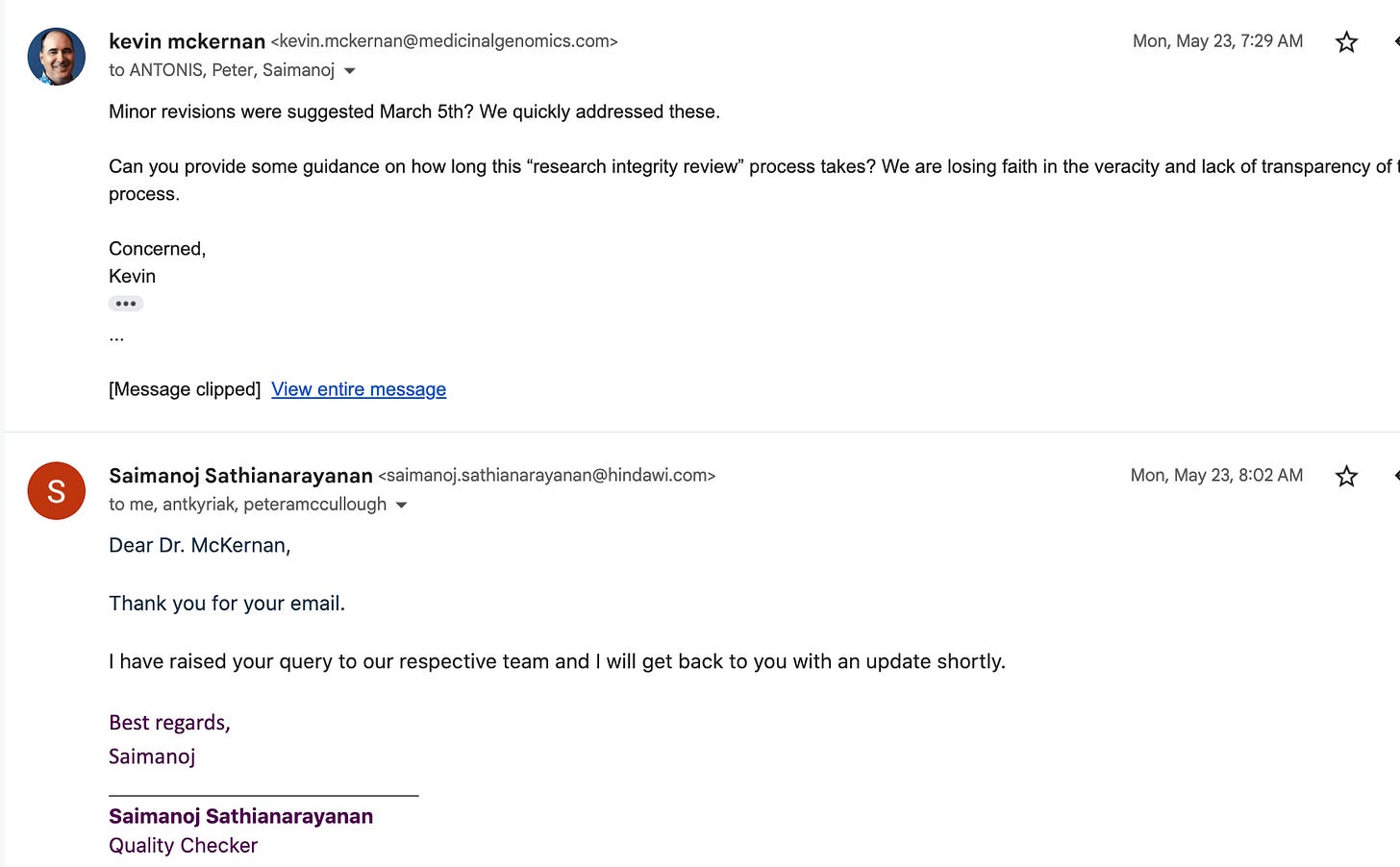

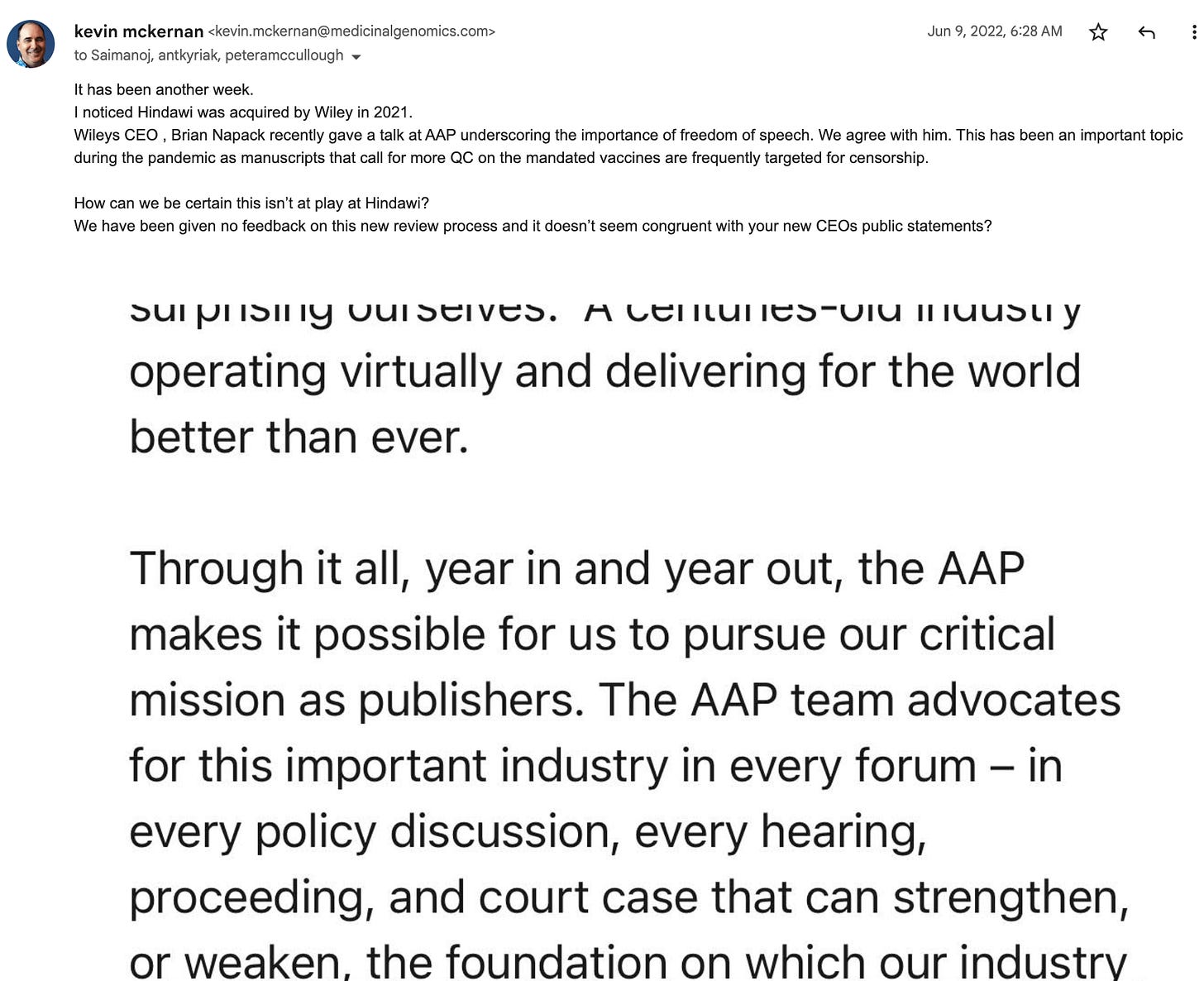
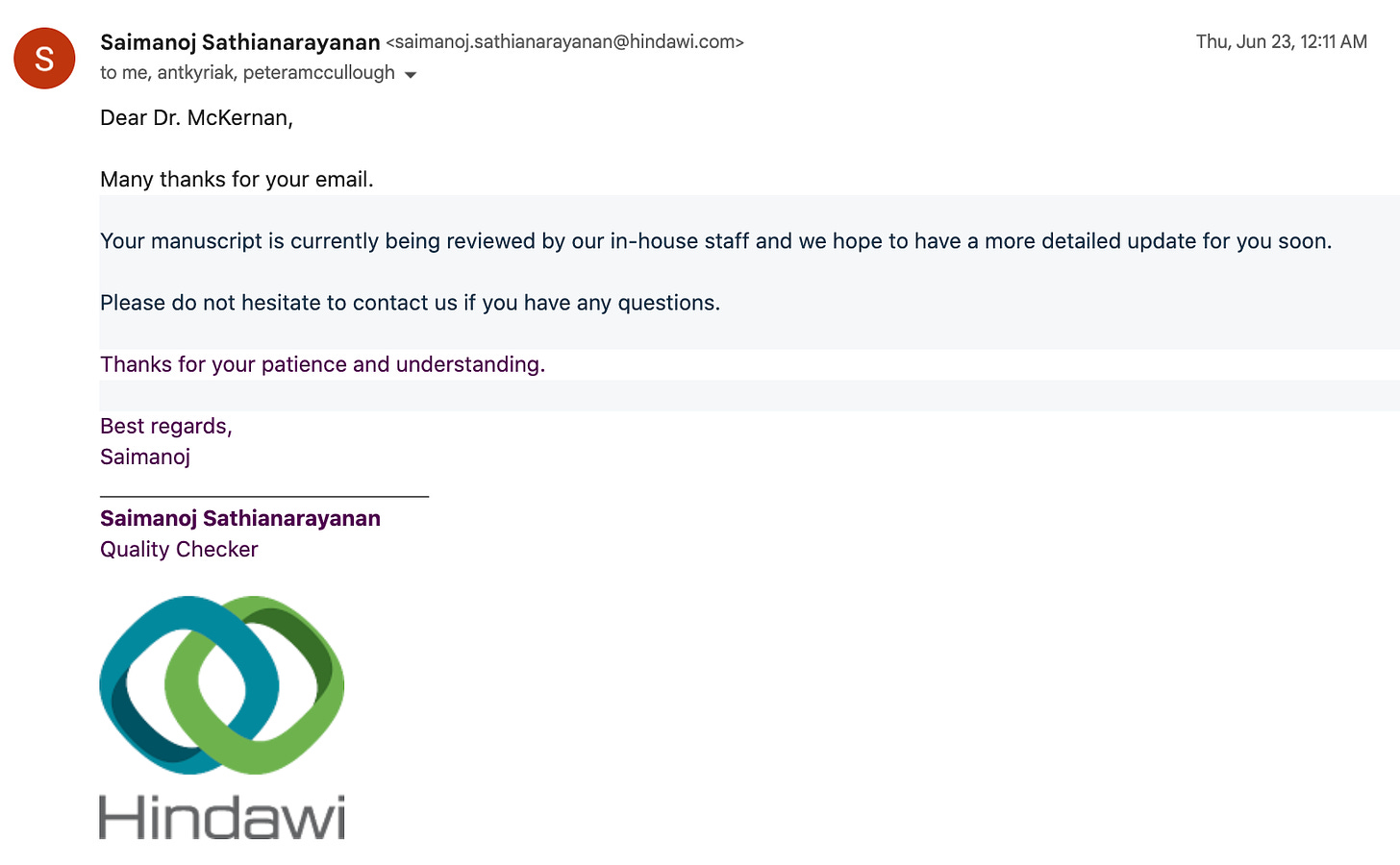





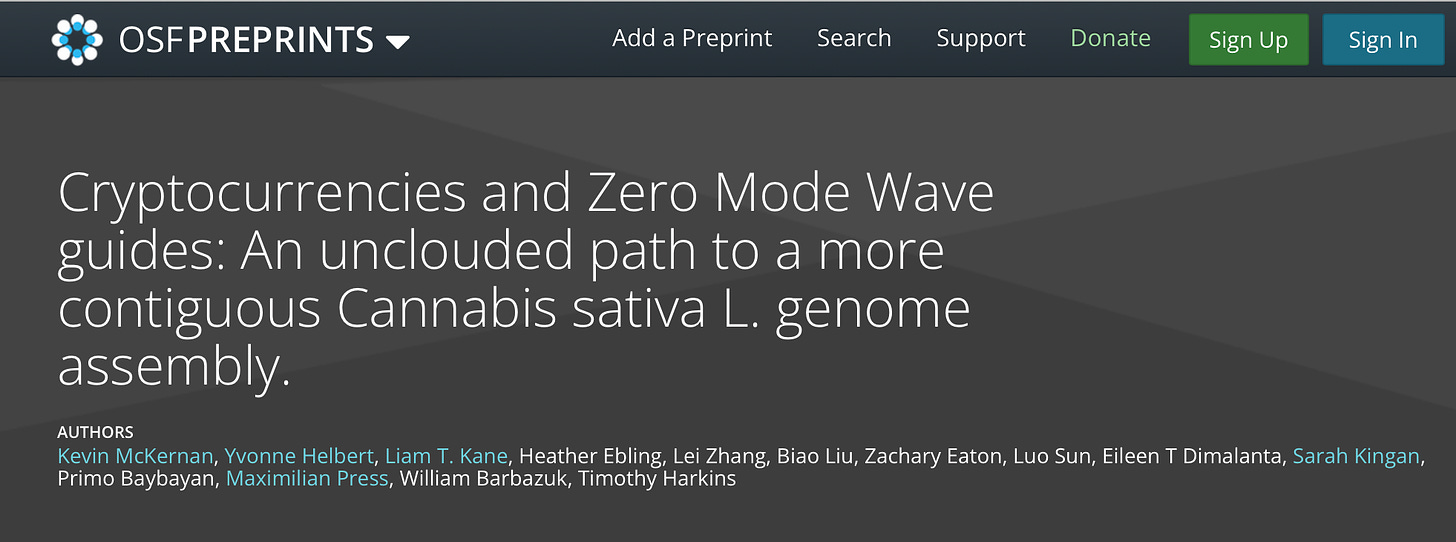











Looks like the Research Integrity Team at the Journal had its plate full retracting 500 other papers.
https://retractionwatch.com/2022/09/28/exclusive-hindawi-and-wiley-to-retract-over-500-papers-linked-to-peer-review-rings/
Thank you for both the account of your Covid illness and your account of the publishing fiasco.
Scientists need to start their own scientific journals and get rid of the middle men and Big Pharma/Big Ag control.
You'd be better off just publishing on your own Wordpress blog than nerfing your way through this scam and most of us readers know it.